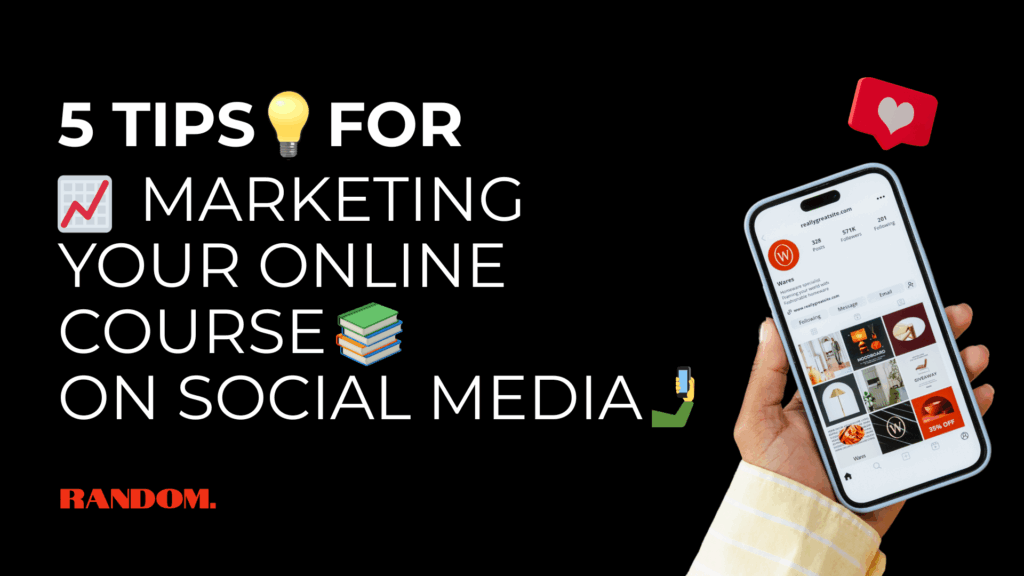So, you’ve put in the hard work, created a fantastic online course, and now you’re ready to share it with the world. But how do you make sure it gets the attention it deserves? A place to start is on social media. With the right approach, social media can be your best friend in marketing your online course, driving traffic to your site, and converting users into students.
In this blog post, we’ll break down five essential tips for marketing your online course on social media. These tactics will help you engage your audience, generate buzz, and boost enrollments. Ready to level up your social media marketing? Let’s get learning!

People love a good sneak peek. Teasers and free value items help generate excitement around your course before it even launches. Share snippets of your course content, such as short video clips, worksheets, or even a free mini-course or webinar. Offering free value not only demonstrates the quality of your course but also helps to position you as a credible source for your niche.
How to Do This:
Example:
Conveniently, we’re currently in the promoting stage of a soon-to-be-released product of our own. Check out this teaser reel we posted a while back with behind-the-scenes footage to hype up our audience for what’s coming:
(Oh, and if you happen to want to be the first to know when we launch our new product, subscribe to our newsletter.)
Paid ads on platforms like Facebook, Instagram, LinkedIn, and TikTok can drastically expand your reach and bring in leads you might not reach organically. Running targeted ads for your online course is a great way to get your offering in front of the right people—fast.
How to Do This:
Example:
We discussed offering free value, such as hosting webinars, to attract potential students and demonstrate your skills. This is a great opportunity to start running paid ads! For instance, here’s one of the many ads we ran to promote a free webinar we previously hosted:

Social media is a two-way street. To truly engage your audience, you need to create content that encourages interaction and participation. Polls, quizzes, and Q&A sessions are perfect ways to connect with potential students and spark conversations around your course.
How to Do This:
Example:
To inspire you, check out this LinkedIn poll post by Teachable, a platform for online course creators, where they ask their audience about preferences to better serve those interested in their offerings:

Social proof is powerful. When potential students see that others have taken your course and loved it, they will likely trust your brand and be more inclined to enroll. Highlighting testimonials, case studies, and success stories from your previous students will help build trust and credibility.
How to Do This:
Example:
Sharing testimonials may look different for everyone. But sometimes it's best not to overcomplicate it, after all, the words speak for themselves! Check out this simple yet effective way this small business owner shared quotes from one of her clients:
Consistency is key when marketing your online course. Regularly posting valuable content related to your course topic keeps your audience engaged and attracts new followers. By consistently providing educational tips, behind-the-scenes content, and insights, you position yourself as an authority in your field, which ultimately drives course sign-ups.
How to Do This:
Example:
Neil Patel shares valuable SEO tips and digital marketing strategies consistently on his Instagram and YouTube channels. His educational posts keep his audience engaged, leading them to sign up for his courses.
Marketing your online course on social media is about creating genuine connections with your audience, building trust, and showcasing your expertise. These five tips can boost your course’s visibility and enrollments.
Social media is a powerful tool for growing your online course business. So, what are you waiting for? Time to get out there and turn those followers into students!
Need help crafting a social media strategy for your online course? At RANDOM, we can help you create a strategy that engages your audience and drives enrollments. Let’s get started! 🚀